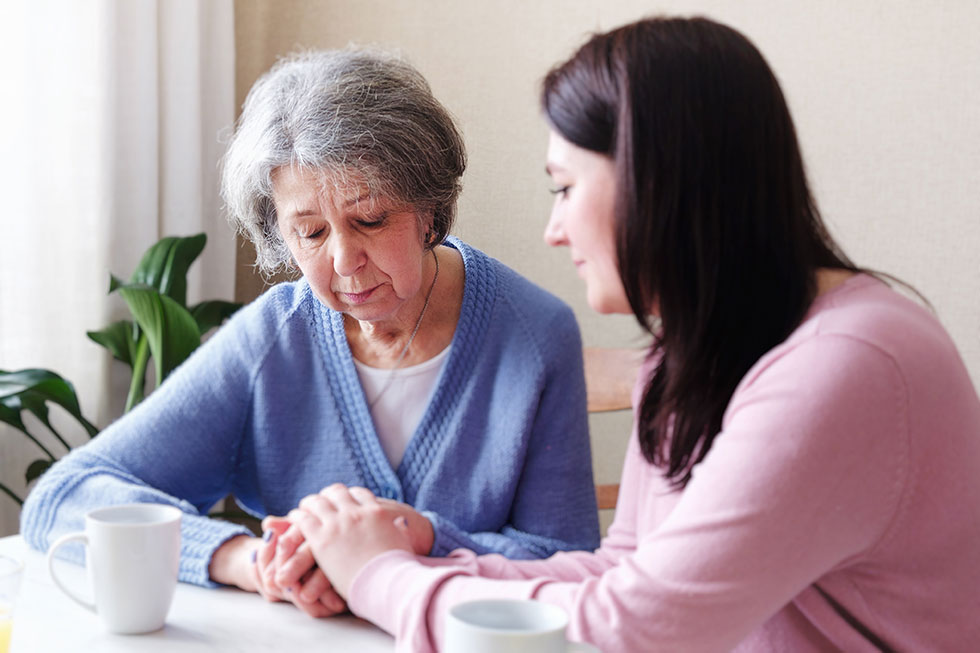If you notice that your loved one is struggling with routine tasks, experiencing frequent falls or showing signs of memory loss, it may be time to consider home healthcare. Home healthcare helps keep your loved one safe while allowing them to maintain a sense of independence and remain in their familiar surroundings.
Understanding when to introduce a caregiver into your loved one’s life requires careful observation and consideration of their overall well-being. Pay close attention to changes in their physical and mental health, difficulty with daily living activities and the strain on family caregivers. Consult your loved one’s physician for professional input as well.

Signs to Look for
There are both physical and mental health changes that may indicate that your loved one needs home healthcare.
Physical changes include:
- Mobility issues; specifically difficulty walking or moving around
- Increased incidence of falling (Learn about falls and fractures in older adults here.)
- Unexplained or sudden loss of weight
Mental health changes include:
- Notable changes in short-term or long-term memory
- Frequent confusion or disorientation (Learn about the early signs of Alzheimer’s and dementia here.)
- Persistent sadness, withdrawal from social activities or loss of interest in hobbies
Struggles with daily living activities also may indicate a need for assistance, including:
- Challenges with cooking or feeding themselves
- Neglecting personal hygiene, including regular bathing and dental care
- Inability to dress independently or appropriately for the weather
Filling the Caregiving Gaps
Caring for an aging family member often causes physical and emotional strain on family caregivers, and family members may face difficulties in consistently providing the necessary level of care a loved one requires. If the support needed is beyond what family members can provide, it may be time to consider home healthcare.
Professional caregivers can fill the gap when family members are unable to provide all the care a loved one requires. They are trained to ensure safety and manage the healthcare needs of those who can no longer care for themselves independently.
Home healthcare offers a number of advantages, including:
- Comfort: Receiving care in your own home, referred to as “aging in place,” can enhance your loved one’s quality of life by providing a sense of comfort and normalcy.
- Tailored Care Plan: Home healthcare plans are personalized to the client’s specific needs.
- Comprehensive Services: Services range from assistance with self-care, meal preparation, light housekeeping, laundry, errands and medication reminders to transporting the client to appointments and supervision of someone with dementia or Alzheimer’s disease.
Hiring the right home healthcare provider is essential to providing your loved one with a safe and meaningful experience. Be sure to look at online reviews and ask for references, too. (Learn more in the blog How to Find Home Health Care for Your Loved One.)
AARP also offers many caregiving resources. You can find them here.
